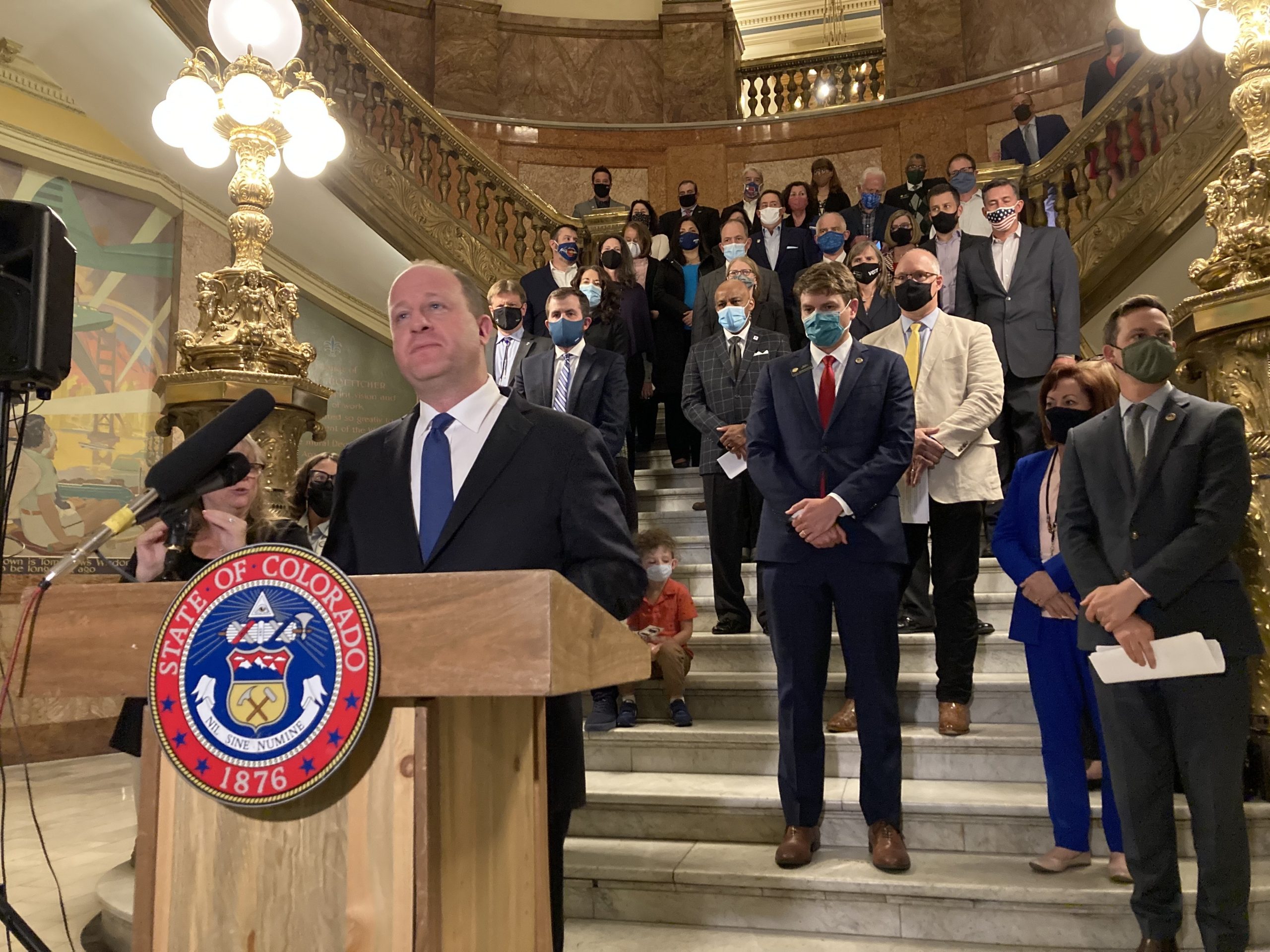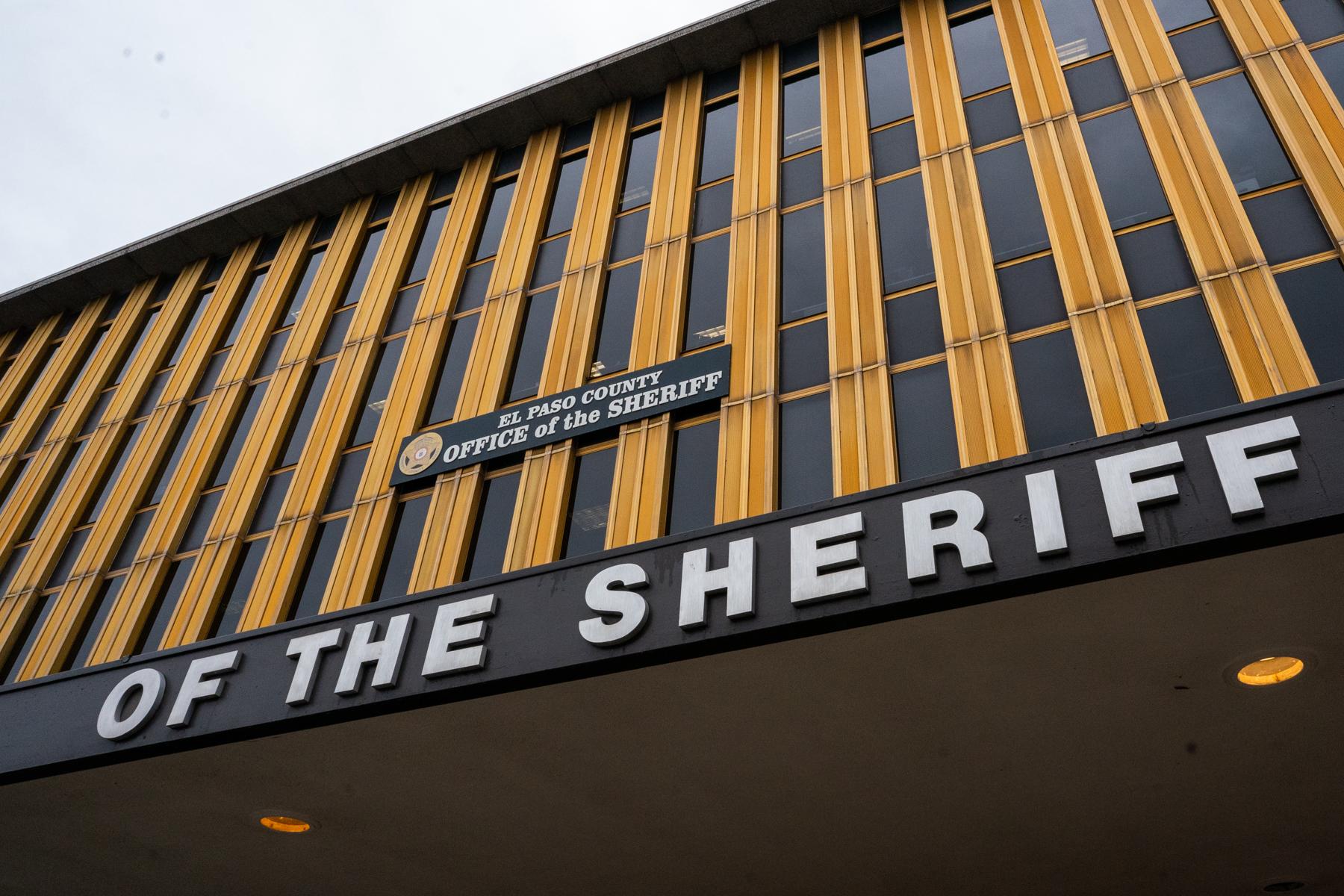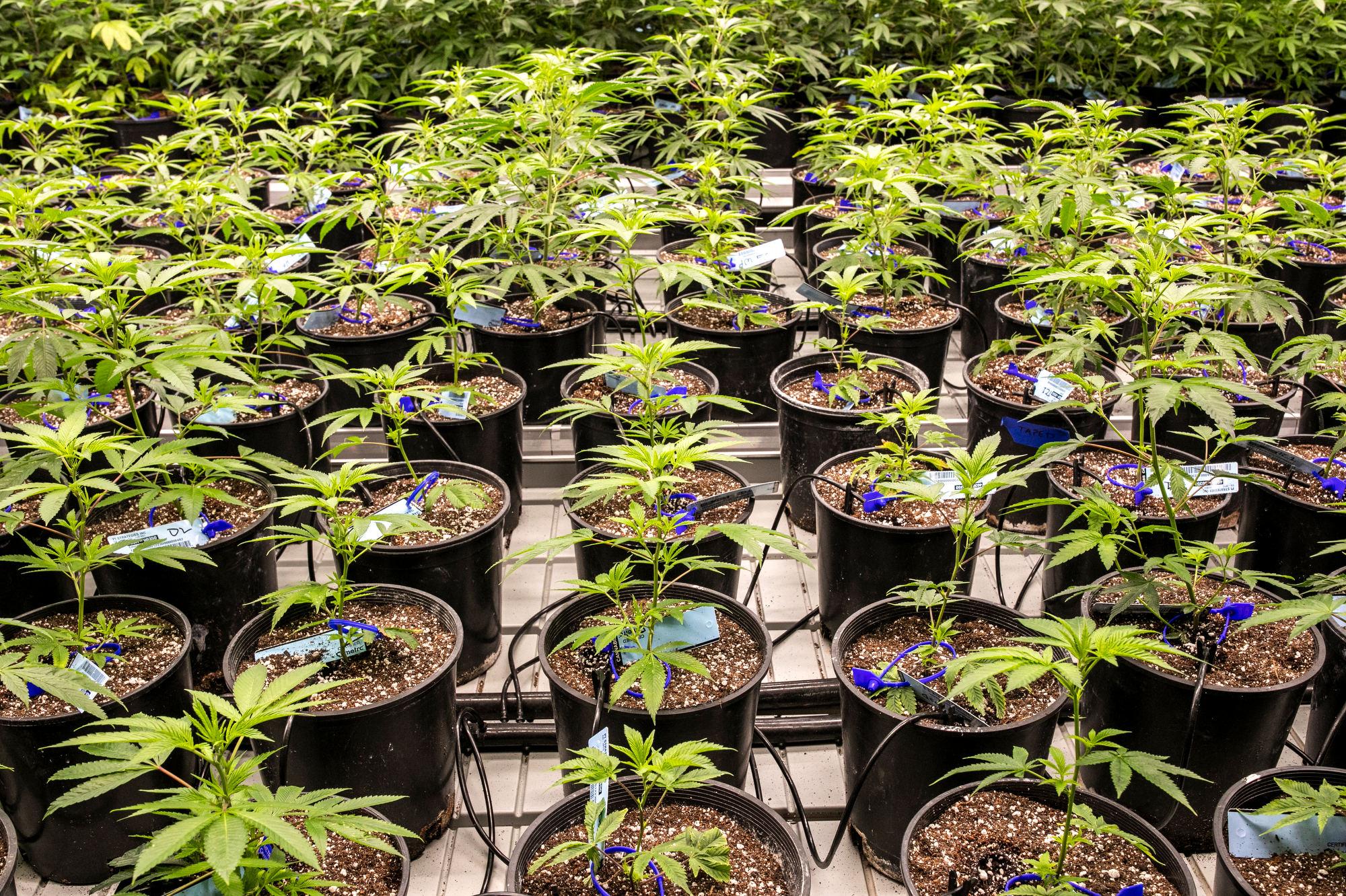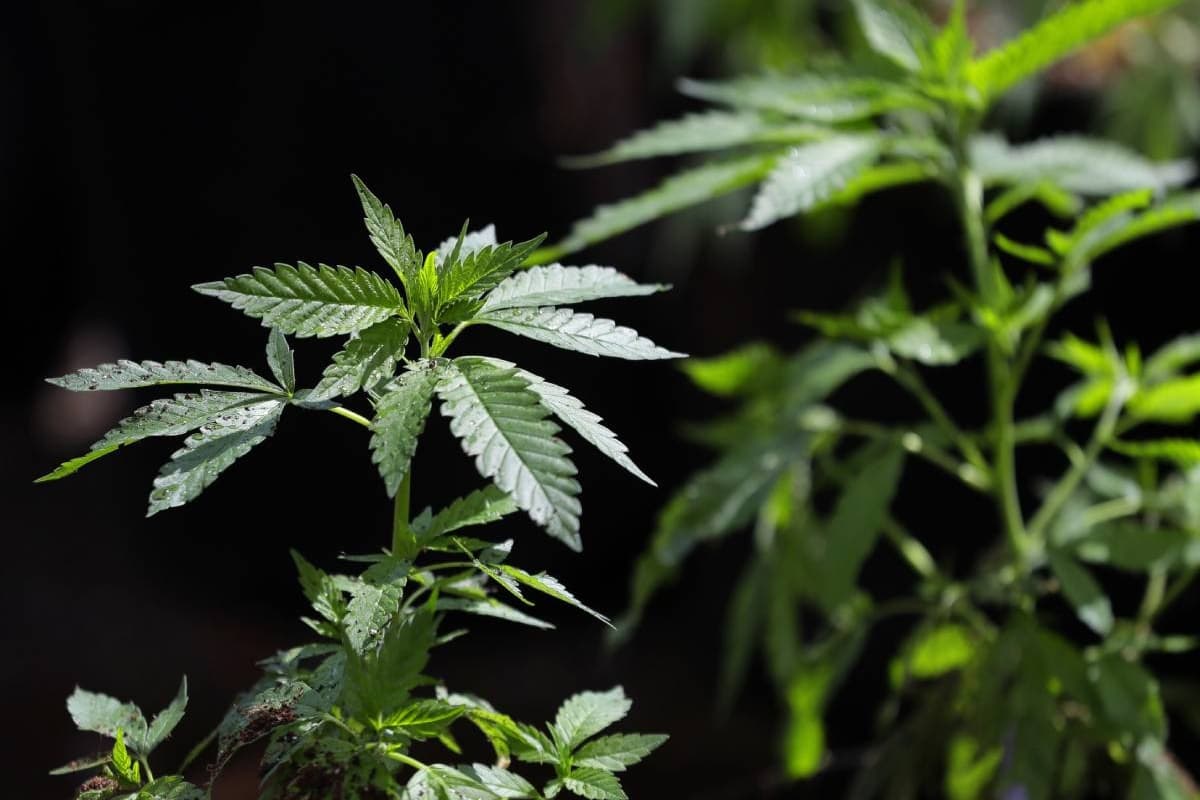
They stood shoulder to shoulder on the Capitol’s rotunda stairs Tuesday: transportation officials, the head of an environmental group, representatives from business groups, Democrats and even two Republicans.
They were a “historic coalition,” Gov. Jared Polis announced from a podium below, the product of more than 100 meetings meant to build support for the day’s occasion: a long-awaited transportation funding bill.
The bill, SB21-260, aims to raise $3.784 billion in new revenue through fees on everything from gasoline sales to food delivery. Another $1.484 billion will come from the state’s general fund and one-time stimulus funding.
"No more U-turns. No more detours,” Polis said at the announcement on Tuesday afternoon. “It's time for action to fix our roads and our transportation infrastructure. This plan moves us boldly forward in the right direction.”
The state’s gas tax has stayed at 22 cents per gallon since 1991, and various attempts to raise new revenue at the statewide ballot have failed in over the last few decades. While the legislature has funnelled some new money to the Colorado Department of Transportation, the agency’s 10-year plan to repair roads and bridges, boost multimodal options and expand a handful of highways remains only partially funded.
The new bill will try to head off chronic underfunding in the future by creating new fees on new technologies -- like electric vehicles -- and new ways our transportation system is being used -- like Uber and Lyft rides. Those fees would be tied to cost indexes, meaning they would automatically rise over the years.
More than a dozen attendees spoke in support of the bill, with many suggesting that it wasn’t everything they dreamed it would be -- but it was good enough to get their public backing.
Colorado Springs Mayor John Suthers, one of the highest profile Republicans in the state, said he’d prefer more money come from the general fund, with more of that going toward highway expansion and less toward multimodal projects like public transportation. But he still threw his support behind the bill.
"I'm a political realist, and I understand political compromise,” he said. “I don't see a better package coming from the legislature or the voters anytime soon. And I strongly believe we cannot kick this can down the road any longer."
Elise Jones, executive director of the environmental group Southwest Energy and Efficiency Project, has said recently that the state should spend more on public transit, including the Regional Transportation District. On Tuesday, she focused on how hundreds of millions of dollars in the bill will pour into electric vehicle incentives and infrastructure.
"Replacing gasoline-fueled cars and trucks with ones fueled with clean electricity is absolutely critical to meeting our state's climate targets,” she said.
The bill will still surely meet headwinds. Sage Naumann, communications director for the Senate Republican caucus, criticized the bill, specifically that it would repeal an existing law requiring lawmakers put a measure on the 2021 ballot asking voters to allow the state to borrow $1.8 billion for transportation projects. Naumann also said the use of fees would impact the state’s poorest residents the most.
“Every single Coloradan will have to pay more because of this bill, during an economic crisis,” he said.
The bill was sent to the Senate Finance Committee. Its first hearing has not yet been scheduled.








